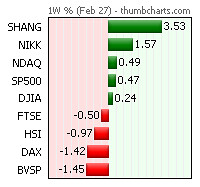Have you ever wanted to own a piece of a company? If you have, then investing in the stock market may be for you. Before you jump into the stock market feet first and invest your life’s savings, you need to learn some important information about stock market investing. You can find the pertinent information here.
Before getting into the stock market, carefully observe it. Studying the stock market at length is recommended before purchasing your first investment. If you are unsure of how long to study the market, try to watch it for at least three years. If you wait long enough, you will know how the market functions and you will be making the right decisions.
Watch the markets closely prior to jumping in. Before your initial investment, it’s a good idea to study the stock market for as long as possible. A sensible rule of thumb would be to keep your eye on the ups and downs for three years closely watching market activity. This will give you a much better idea of how the market operates and increase your chances of making money.
This gives you the opportunity to decide whether you should own particular stocks.
Before agreeing to a specific broker, make sure you understand the fees involved. Make sure to find out what fees are paid up front and what fees are due at the end of the transaction. It will shock you how much they add up to!
Do not invest too much money in stock of the company who employs you. Although it seems good to support your company by owning its stock, it does carry a significant risk. If something happens to the company, both the value of your portfolio and your paycheck could be threatened. However, if you get a discounted rate on showers, it can be worth investing some of your money in the company.
Investment Strategies
When you’re thinking of a rainy day fund, you should be thinking of an investment option that earns a lot of interest. You should also keep at least six months worth of expenses in it. This allows you to have a cushion if you lose a job, suffer an illness or have any other issues that prevent you from covering your bills, so that you do not need to dip into your investments.
Keep your investment plan simple when you are just beginning. It is smart to prepare yourself for entering the market by reading up on many different investment strategies, but when you are new it is wise to educate yourself on what the best investment strategies are.This will save you considerable hassle and improving your overall performance.
Don’t invest in your own company’s stock. While you might feel you are doing right to support your employer by buying company stock, you will want to diversify your portfolio more. If your main investment is in your own company, you will lose a lot of money.
Remain within your comfort zone. If you are using an online or discount brokerage yourself, be sure you are looking only at companies you are familiar with. Do you feel confident in the industry of the company you are buying, such as oil and gas? Rely on the guidance of a professional financial adviser when it comes to stocks in industries you do not know.
Invest in any damaged stocks, but avoid damaged companies. A short-term fall in a company’s stock is a great time to buy, but the drop has to be a temporary one. When a company has a quick drop due to investor panic, there can be sudden sell offs and over-reactions which create buying opportunities for value investors.
Now that you have read this article, does investing in stock remain an ideal to you? If you think yes in your head, then you are ready to start learning how! Keep all of the information you learned in mind and you should be selling and buying stocks soon without losing all of your money.
Many people try to make big profits with penny stocks, while ignoring the steady long-term growth and compounding interest of blue-chip stocks. Although there is nothing wrong with seeking out stocks that offer the possibility of explosive growth, you should maintain a balanced portfolio that includes reliable, established companies too. The stocks of these major companies tend to deliver consistent positive results because of the long record of growth they have established.
